Our expertise

"Expertise at the service of others"
Our approach
Selection and Analysis
be.Source aims to bring together as many actors in our society as possible to address the challenges linked to the ageing of our population. The foundation strongly believes that this issue concerns us all, and that we can only overcome it together.
To achieve this, be.Source selects and assesses projects from non-profit organisations and charitable institutions that work in favour of vulnerable older people and that fall under at least one of its three pillars of solidarity. The foundation then supports these charitable programmes transparently and monitors their implementation with rigour, according to predefined qualitative and quantitative objectives.
Coordination and Synergy HUB
Objectives
Created in 2016 by be.Source, the HUB is a platform for exchange, reflection and training that brings together the foundation's partner associations and institutions. Facilitated and funded by be.Source, it aims to foster synergies, strengthen the skills of network members, and better respond to the needs of vulnerable older people. Through regular meetings, the HUB enables the sharing of field experiences, the development of joint actions, and the identification of priority needs for supporting older people in need.
Initiatives developed within the HUB
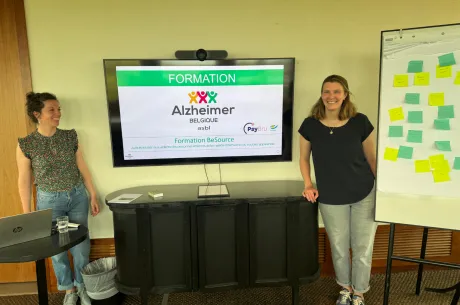
Trainings
Provide training to field actors to enhance their skills for the benefit of older people.
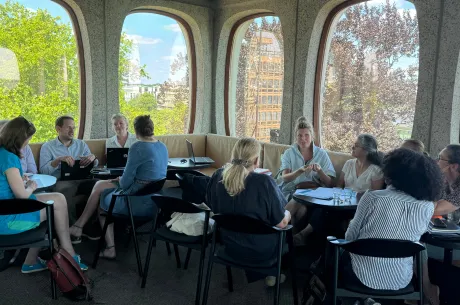
HUB
Collective brainstorming groups with partners on aging-related challenges and synergy projects.
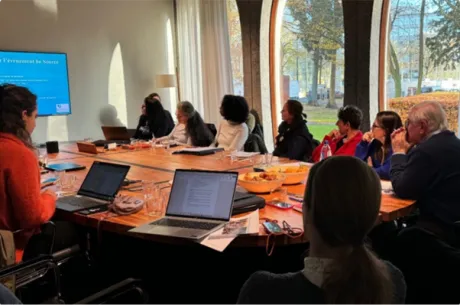
Workshops
Workshops to exchange on specific issues affecting older people and to initiate potential solutions.
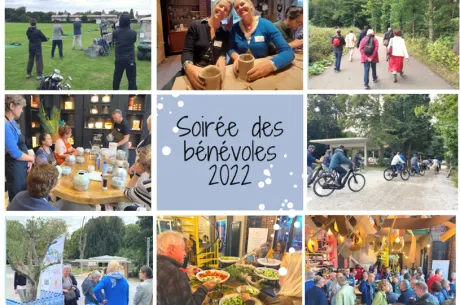
Volunteers Evening
Friendly gatherings to strengthen HUB connections and thank volunteers for their work.
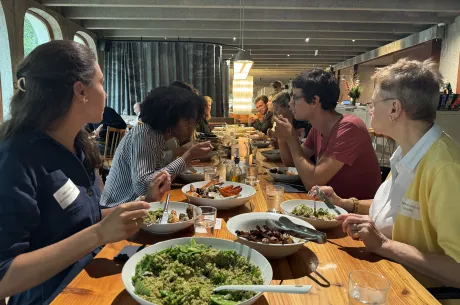
Lunchdatings
Friendly meals to strengthen connections among partners and share experiences.
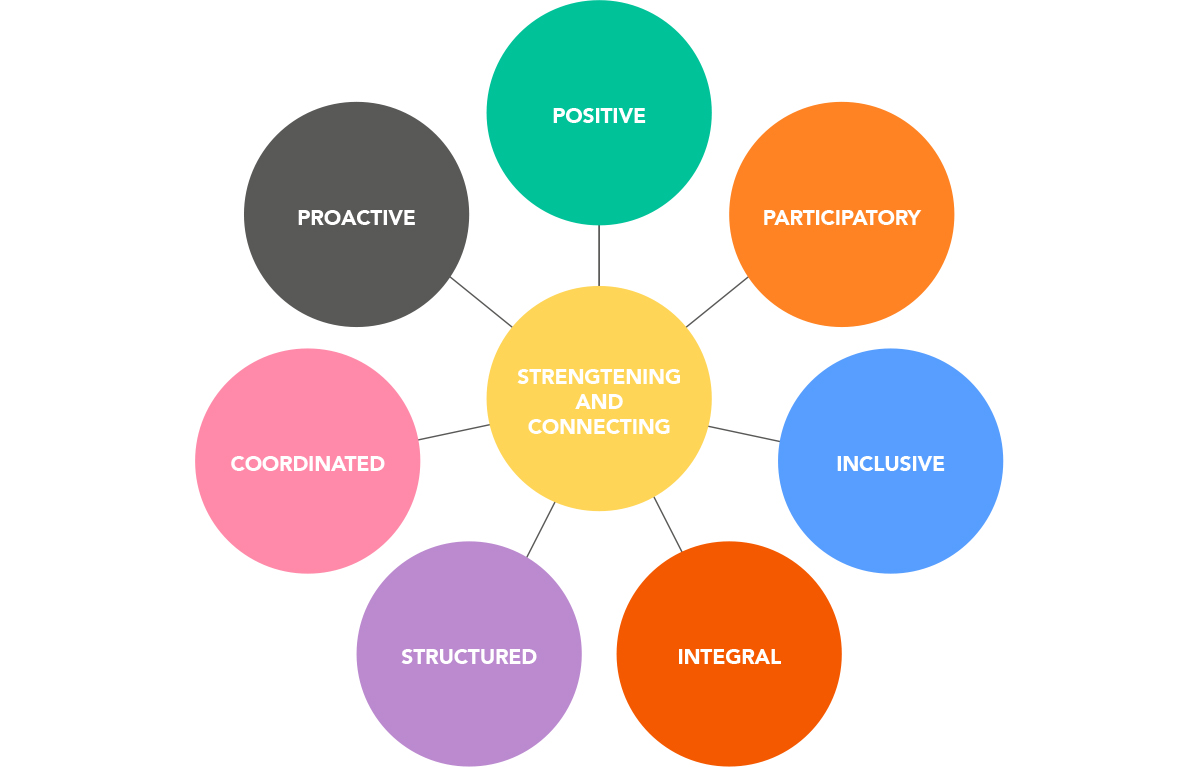
SILVER EMPOWERMENT
be.Source and HIVA KU Leuven have joined forces in a common mission and vision, “Silver Empowerment.” Commissioned by be.Source, the academic chair at KU Leuven, “Empowerment of Underprivileged Elderly,” aims to promote research on (vulnerable) older adults, particularly the psychosocial aspects that affect them. The central question is how to strengthen these older people in precarious situations and improve their connection to society and their environment so that they can enjoy a better quality of life. In partnership with be.Source, HIVA KU Leuven seeks to convey a more positive image of old age and to strengthen solidarity in our society.
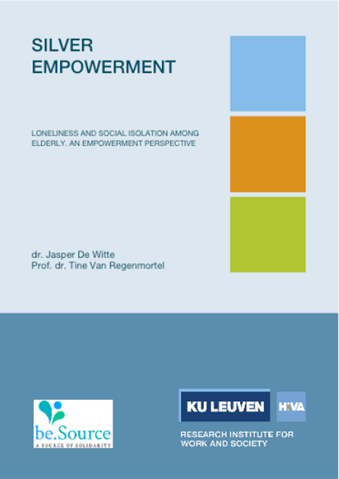
Report 1: LONELINESS AND SOCIAL ISOLATION AMONG ELDERLY. AN EMPOWERMENT PERSPECTIVE
This research has enabled us to gain a better understanding of feelings of loneliness and social isolation among older adults. It has also helped us identify innovative solutions to alleviate them, based on the empowerment paradigm. According to scientific studies, 46% of Belgians aged 65 and over suffer from feelings of loneliness, and 32% have a very limited social network. This finding is alarming, as loneliness and social isolation significantly affect other domains (physical, psychological, social) as well as overall quality of life. The study shows that a range of tailored actions and solutions are necessary, and that empowerment principles are essential for effective implementation in the field.
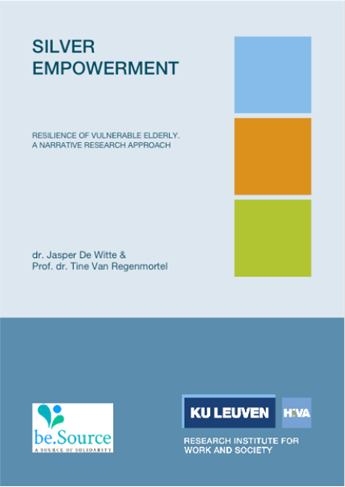
REPORT 2: RESILIENCE OF VULNERABLE ELDERLY. A NARRATIVE RESEARCH APPROACH
Based on the testimonies of 15 vulnerable older adults, this study seeks to identify the sources of resilience that these individuals can mobilize in the face of adversity. Older people use multiple (interconnected) forms of resilience situated in the individual, interactional, and contextual domains. We observed that these resilience processes take time, particularly when they involve changes in social connections and emotions (e.g., loneliness). Psychological support appears to be essential. Moreover, organizations need to create “enabling niches” that can strengthen resilience levels, and society must provide older adults with more opportunities for participation. The “Power of Giving” seems to be of crucial importance if we want to ensure a high quality of life.
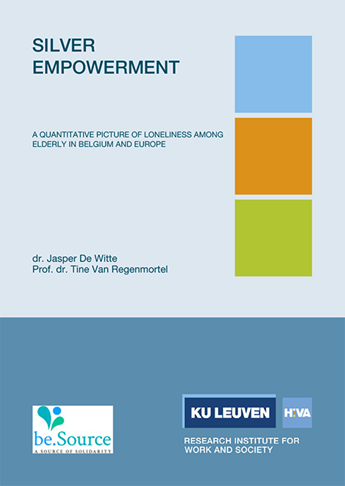
REPORT 3 : A QUANTITATIVE PICTURE OF LONELINESS AMONG ELDERLY IN BELGIUM AND EUROPE
This third report allows us to better understand how to prevent loneliness among older adults in Belgium and in Europe. We note that 22% of Belgians over 65 and 27% of Europeans over 65 reported feeling lonely in 2017. These figures are alarming: extrapolated to 2020, this means that nearly 500,000 Belgians and 28 million Europeans are currently suffering from loneliness. Moreover, loneliness appears to be very unevenly distributed across different groups in society. Certain groups suffer more from loneliness, such as the “oldest old,” but also older adults in poor health, those with a more limited social network, or with lower incomes. It also appears that older adults with a migration background are more isolated than those without one. If we are to take effective measures against loneliness, it is therefore essential to take these specific aspects into account.
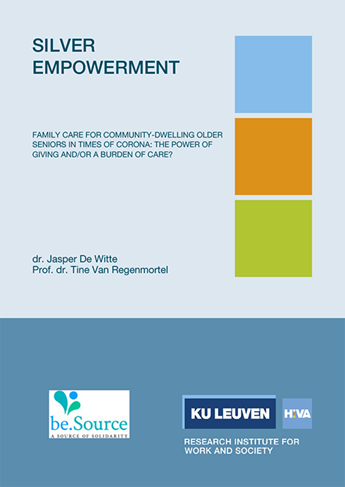
REPORT 4 : FAMILY CARE FOR COMMUNITY-DWELLING OLDER SENIORS IN TIMES OF CORONA: THE POWER OF GIVING AND/OR A BURDEN OF CARE?
This 4th report highlights the essential role of informal caregivers in enabling older people to remain at home, by providing support not only in practical matters (meals, transportation, administration) but also on social and emotional levels. However, this support often comes with a heavy “care burden,” which was worsened during the COVID-19 pandemic by reduced social contacts and the disappearance of respite opportunities. The study shows that many seniors struggle with loneliness, social barriers, and difficulties in building new relationships, while caregivers, though generally appreciated, face high pressure, a lack of recognition, and sometimes isolation. The report notably recommends the appointment of a family care coordinator to better address the needs of both seniors and their relatives.
